Confused about the many GCSE revision books on the shelves? Don’t know which one is the best for you?
We’ve listed the best-selling GCSE revision guides for each subject. You only need to study the books for the subjects that are more demanding for you. So, don’t worry about the bulk of the listed books.
- CGP GCSE English Literature Complete Revision & Practice
- Collins GCSE English Language and Literature All-in-One Revision and Practice
- Pearson Edexcel GCSE (9-1) Mathematics Higher Student Book
- CGP GCSE Combined Science AQA Revision Guide (for grades 9-1)
- Oxford Revise: AQA GCSE Biology
- CGP GCSE Chemistry AQA Revision Guide
- Collins GCSE Physics for AQA
- CGP GCSE Geography AQA Complete Revision & Practice
- Oxford AQA GCSE History
- CGP GCSE French AQA Complete Revision & Practice
- Hodder GCSE (9-1) Business, Third Edition
- CGP GCSE Computer Science Complete Revision & Practice – for exams in 2024 and beyond
Prudent Selection of GCSE Books
Most students may select the revision books based only on the reviews, but you should consider other factors to choose the best ones that meet your expectations and save you time. So, when buying a revision book, pick the ones that get you closer to success.
- Exam board compatibility: Ensure the book is tailored to your board.
- All-inclusive content: In addition to the explanations, the book should contain many questions from past papers, and they should be in different styles.
- Learning style: If you are a visual learner, choose books with more diagrams and illustrations. If you prefer text-based learning, select the ones that explain the concepts comprehensively and clearly.
- Reviews: Find out what readers think of the book. You can find the book on Amazon and read the reviews and the ranking.
- Extra features: Some books include additional resources like audio tracks, online interactive practices, apps, etc., which can reinforce the revision process.
- Index preview: Check the table of contents and turn over the pages quickly to check if the book matches your expectations.
- Available time: if you are revising in the few weeks leading up to the exam, don’t choose bulky books. Start early to be able to study the comprehensive revision books.
Pro Tip:
The best way to revise for GCSEs is to use multiple resources. This way, you can approach a subject from several perspectives to maximise your readiness for the real exams. So, if you diversify your revision resources, there won’t be any surprises on the exam paper.
You can also read: Discover the 7 Best Apps for GCSE Revision
Best GCSE Revision Books 2024
Your frustration with choosing the right GCSE revision books ends here. The table lists the best revision books and contains details about each book that help you decide whether it’s the missing book in your library.
| Handpicked List of GCSE Revision Books | ||||
| Cover | Name of the Book | What is special about the book? | Whom is the book good for? | What do reviews say? |
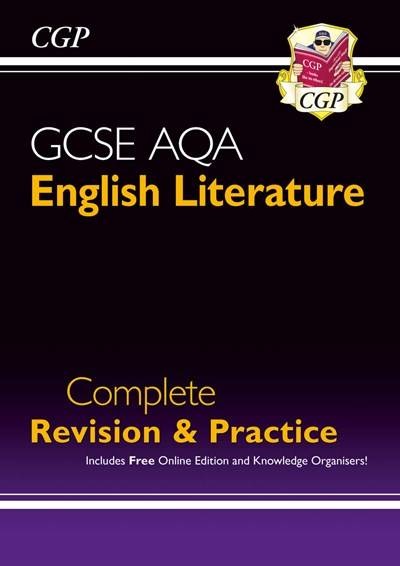 |
CGP GCSE English Literature Complete Revision & Practice | Comprehensive coverage of set texts, clear summaries, analysis of key themes and characters, practice questions, and sample answers. | Students who need a thorough understanding of literature texts and enjoy detailed analysis with plenty of practice questions. | Highly rated for its detailed content and engaging explanations. |
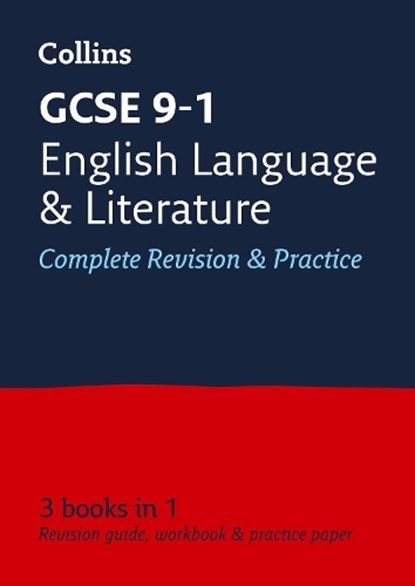 |
Collins GCSE English Language and Literature All-in-One Revision and Practice | Combines both language and literature, includes exam practice questions, tips on how to tackle different question types, and a focus on improving writing skills. | Students looking for a consolidated guide for both language and literature with a strong emphasis on exam techniques. | Praised for its comprehensive approach and practical exam tips. |
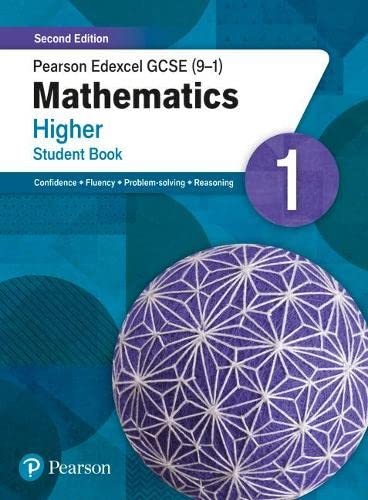 |
Pearson Edexcel GCSE (9-1) Mathematics Higher Student Book | Aligns perfectly with the Edexcel exam board, extensive practice questions, worked examples, and tips for avoiding common mistakes. | Students preparing for the Edexcel exams need a lot of practice with higher-level maths problems. | Appreciated for its alignment with the syllabus and clear explanations. |
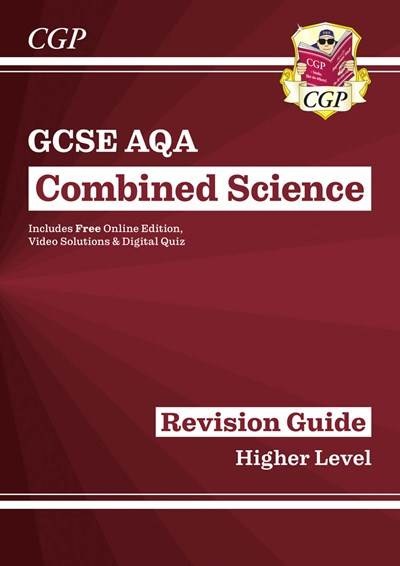 |
CGP GCSE Combined Science AQA Revision Guide (for grades 9-1) | Concise revision notes, clear explanations, practice questions for all topics, and full coverage of the AQA syllabus. | Students taking the AQA combined science exams who prefer clear and concise revision materials. | Well-regarded for its clarity and comprehensive coverage of all science subjects. |
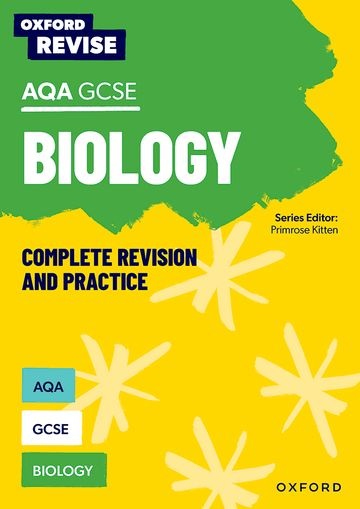 |
Oxford Revise: AQA GCSE Biology | Follows the Oxford learning cycle of knowledge, retrieval, and practice, high-quality diagrams, and integrated exam questions. | Visual learners who benefit from structured revision and need extensive practice questions. | Highly recommended for its structured approach and quality diagrams. |
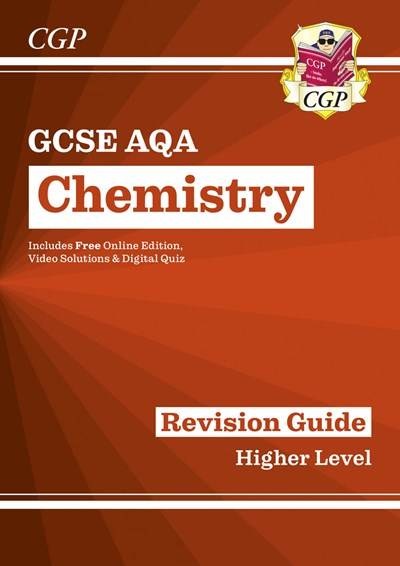 |
CGP GCSE Chemistry AQA Revision Guide | Comprehensive content coverage, clear explanations, humour to make studying more enjoyable, and plenty of practice questions. | Students who need a thorough yet engaging guide to help them stay motivated and cover all key topics. | Loved for its engaging style and thorough explanations. |
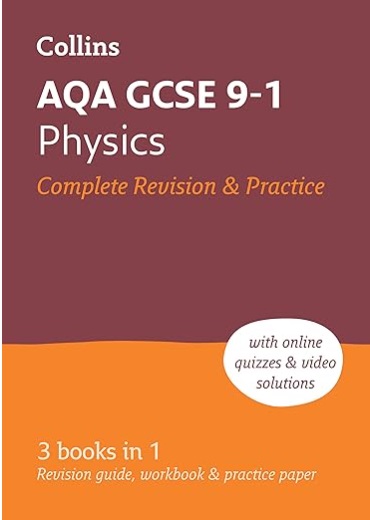 |
Collins GCSE Physics for AQA | Detailed explanations of concepts, practical examples, step-by-step guidance on calculations, and exam-style questions. | Students who need a detailed understanding of physics concepts and prefer a practical approach to learning. | Valued for its practical examples and detailed coverage. |
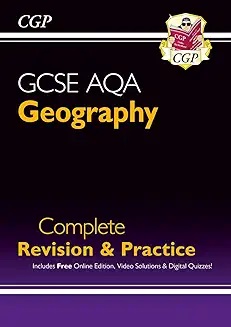 |
CGP GCSE Geography AQA Complete Revision & Practice | Full coverage of the AQA geography syllabus, clear and concise notes, case studies, and plenty of exam-style questions. | Students taking the AQA geography exam who prefer a book with integrated revision and practice. | Highly rated for its concise notes and effective case studies. |
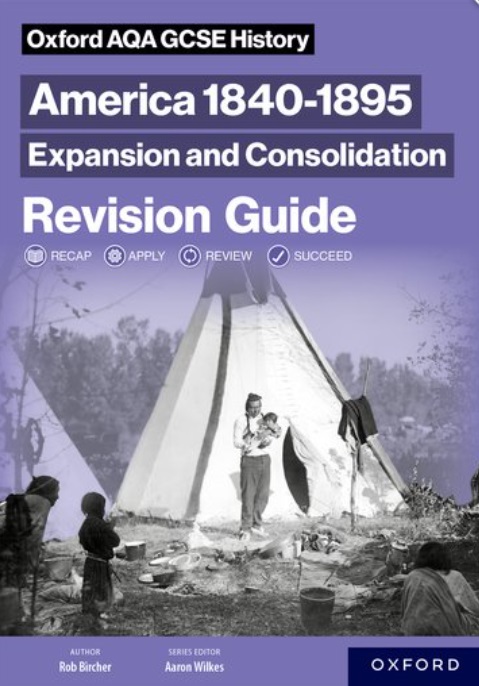 |
Oxford AQA GCSE History | Detailed content coverage, thematic studies, and practice questions. Focus on developing historical skills and understanding. | Students who need in-depth content and want to develop strong analytical skills in history. | Praised for its detailed content and effective practice questions. |
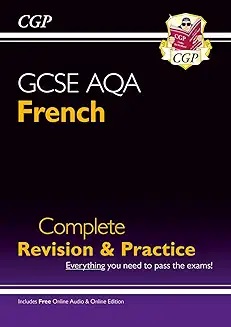 |
CGP GCSE French AQA Complete Revision & Practice | Comprehensive grammar and vocabulary coverage, practice listening, reading, writing, and speaking skills, and includes audio tracks. | Students taking the AQA French exam who need balanced practice in all language skills. | Appreciated for its comprehensive language skill coverage and audio resources. |
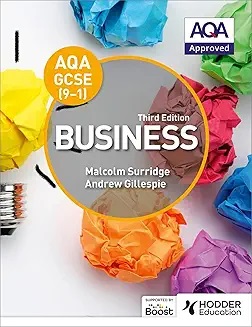 |
Hodder GCSE (9-1) Business, Third Edition | Clear explanations of business concepts, real-life examples, practice questions, and exam tips. | Students who prefer a practical approach to learning business concepts and need plenty of practice questions. | Highly recommended for its practical approach and real-life examples. |
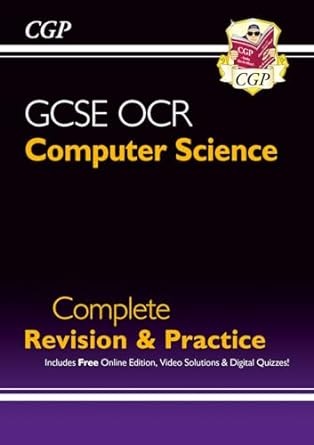 |
CGP GCSE Computer Science Complete Revision & Practice – for exams in 2024 and beyond | Detailed coverage of computer science topics, practice questions, and coding exercises. | Students who need a comprehensive guide to both theory and practical coding exercises. | Praised for its detailed theory coverage and practical coding exercises. |
Does it seem like a lot to revise? It’s still manageable if you start revising six months before the exam season. Download our free “GCSE Revision Timetable Template” and follow these tips on “How To Get Good Grades in GCSE” to get the most out of these revision books.
Not a Book-person?
Books are the most structured and organised GCSE revision resources because they are written by noted educators in the field and edited several times before being published. But they don’t suit every learning style. Some of you might not be able to concentrate and start daydreaming after reading a couple of paragraphs or even sentences. For you, we have two suggestions:
First, if you still prefer to use the GCSE revision books, you should join a study group. When you are in the right environment, you’ll find it easier to focus. Plus, other students in your study group can motivate you and help you when you run into a complicated problem. However, if you need more than that, you should seek help from GCSE tutors.
Second, you can use other revision guides. You should understand your learning style and then decide what resources you want to use to revise for GCSEs. The following resources are excellent substitutes for GCSE revision books.
GCSE Revision Podcasts
- The GCSE Revision Podcast — Tips and strategies for revising and understanding GCSE content.
- Revise – GCSE and A-level Revision — Various subjects and topics discussed and explained in detail.
- BBC Bitesize Revision Podcast — Subject-specific podcasts to aid GCSE revision.
GCSE Revision YouTube Channels
- Mr Bruff — English language and literature revision videos.
- Free Science Lessons — Detailed GCSE science lessons and explanations.
- Primrose Kitten — Covers a wide range of GCSE subjects with revision tips and tutorials.
GCSE Revision Websites
- BBC Bitesize — Comprehensive revision materials and interactive content for all GCSE subjects.
- Seneca Learning — Free interactive revision courses for a range of subjects.
- Quizlet — Flashcards and study sets created by students and teachers.
- GoConqr — Revision resources, mind maps, flashcards, and quizzes.
Why Read GCSE Books for GCSE Revision?
Books are the tried-and-true means of education. And they come with many benefits.
- Comprehensive coverage: GCSE revision books cover all topics of the syllabus. These books explain the topics through examples, tables, diagrams, and other illustrations to ensure learning occurs.
- Organised structure: Probably the best thing about GCSE revision books is that you know what is what. The questions and student-friendly explanations are written in a neat format, and the content has a logical procession. Additionally, the index at the beginning is your map to use in the book.
- Reliable content: These books are written by experienced educators and examiners and are frequently edited based on the latest changes in the National Curriculum. Also, the latest editions align with the exam style of exam boards, such as AQA, Edexcel, and OCR).
- Familiarity with the exam: These books contain exam-style questions, and the answers are also given. Practising these questions familiarises you with various question types (MCQs, short, and extend-answer questions) and helps you assess yourself, identify the gaps, and focus more on your weaknesses.
- Notification-free: Paper books receive no notifications. When you hold a book, you can’t do anything but read. So, in a way, they eliminate some of the distractions you may encounter when using other means of revision, like your Kindle or tablet. Also, the touch of a book can improve your concentration. And it gives you a satisfying feeling.
- Portable and easy to use: You don’t need a device, app, internet connection, or power outlet to read a book. Just enough light, and you are good to go. Oh, and books are eye-friendly too.
- Better hands-on experience: Books allow you to use active reading techniques, such as highlighting, underlining, margin writing and answering questions more conveniently.
FAQs - Best GCSE Revision Books
- What is the best revision technique for GCSE?You should decide on the revision techniques based on your learning style. But, we recommend incorporating active recall and spaced repetition in your GCSE techniques. Pay special attention to core subjects, particularly GCSE maths.
- Is it worth revising for GCSEs?If you aim to pursue higher education or career paths through GCSE qualifications, it’s definitely worth it to revise for GCSEs. But there are other alternatives where you don’t need to revise for the GCSEs.
- Which are the best GCSE revision guides?The revision guides published by Oxford, Pearson, CGP, and Collins are the best and most popular GCSE revision books. You should choose the revision guides based on factors such as your learning style, study goals, exam board compatibility and reviews.
- What is the most effective way to revise for GCSEs?The most effective way is to come up with a personalised, comprehensive, and realistic revision plan. You should diversify your resources and use past exams to familiarise yourself with exam-style questions and develop exam-taking techniques. Remember that breaks are an essential part of your revision plan.

